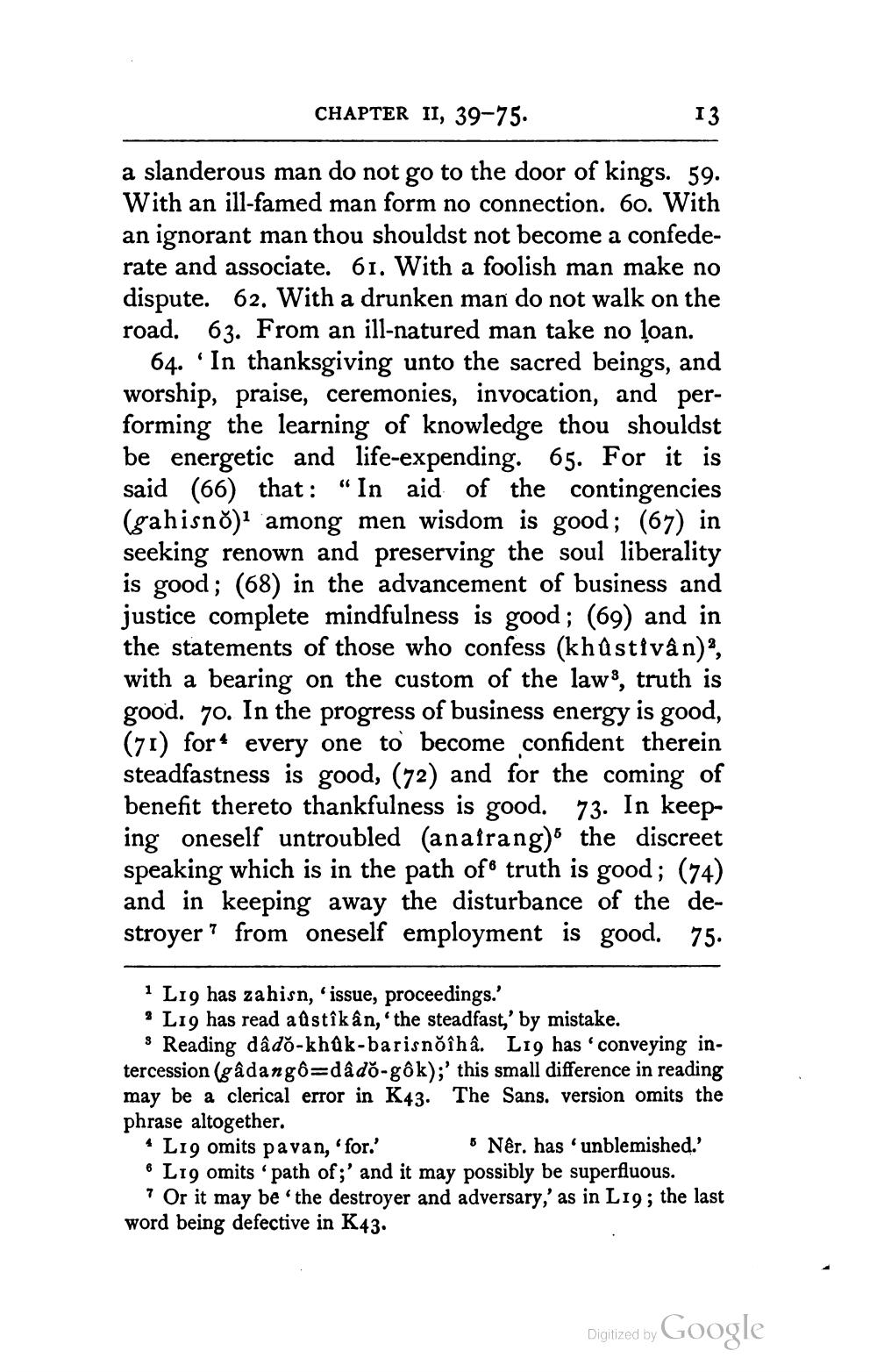________________
CHAPTER II, 39-75.
13
a slanderous man do not go to the door of kings. 59. With an ill-famed man form no connection. 60. With an ignorant man thou shouldst not become a confederate and associate. 61. With a foolish man make no dispute. 62. With a drunken man do not walk on the road. 63. From an ill-natured man take no loan.
64. 'In thanksgiving unto the sacred beings, and worship, praise, ceremonies, invocation, and performing the learning of knowledge thou shouldst be energetic and life-expending. 65. For it is said (66) that: "In aid of the contingencies (gahisno)' among men wisdom is good; (67) in seeking renown and preserving the soul liberality is good; (68) in the advancement of business and justice complete mindfulness is good; (69) and in the statements of those who confess (khůstivân), with a bearing on the custom of the laws, truth is good. 70. In the progress of business energy is good, (71) for every one to become confident therein steadfastness is good, (72) and for the coming of benefit thereto thankfulness is good. 73. In keeping oneself untroubled (anairang), the discreet speaking which is in the path of truth is good; (74) and in keeping away the disturbance of the destroyer? from oneself employment is good. 75.
1 L19 has zahisn, 'issue, proceedings.' 9 L19 has read allstîkân, the steadfast,' by mistake.
s Reading dâdo-khůk-barisnõîhâ. L19 has conveying intercession (gâdangô=dâdo-gôk);' this small difference in reading may be a clerical error in K43. The Sans. version omits the phrase altogether.
* L19 omits pavan, for.' * Nêr. has 'unblemished.' * L19 omits 'path of;' and it may possibly be superfluous.
? Or it may be the destroyer and adversary,' as in L19; the last word being defective in K43.
Digitized by Google




